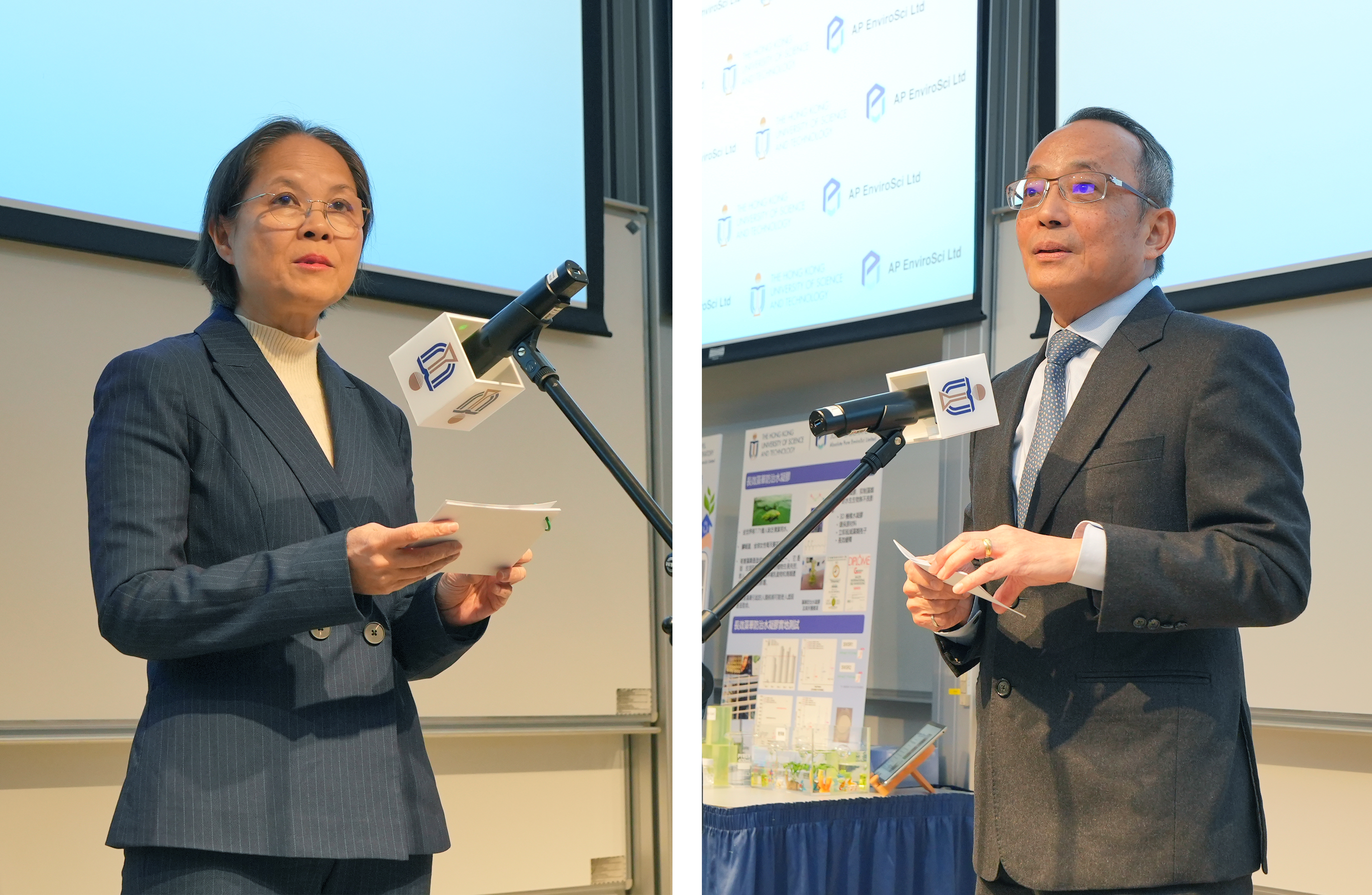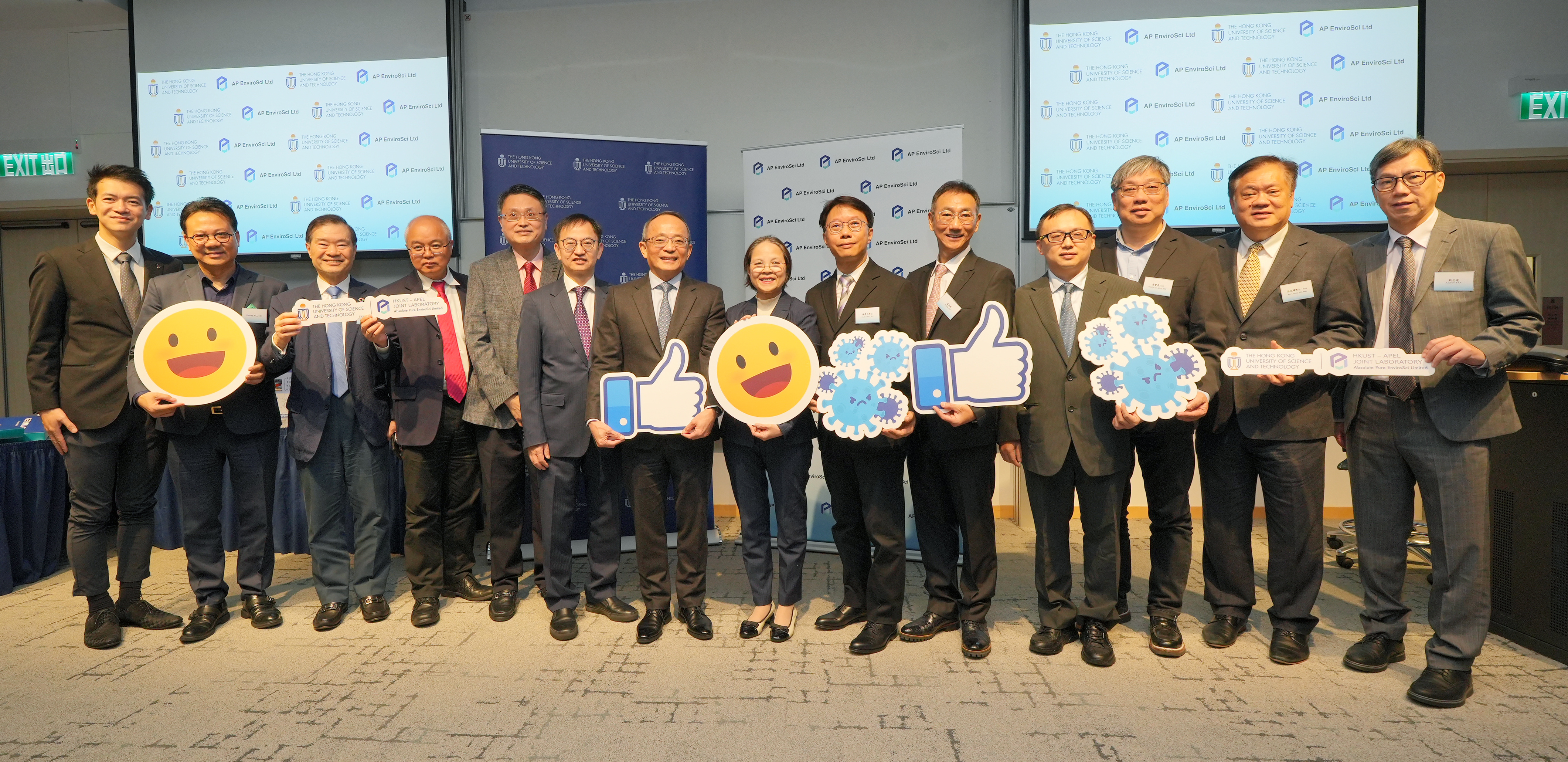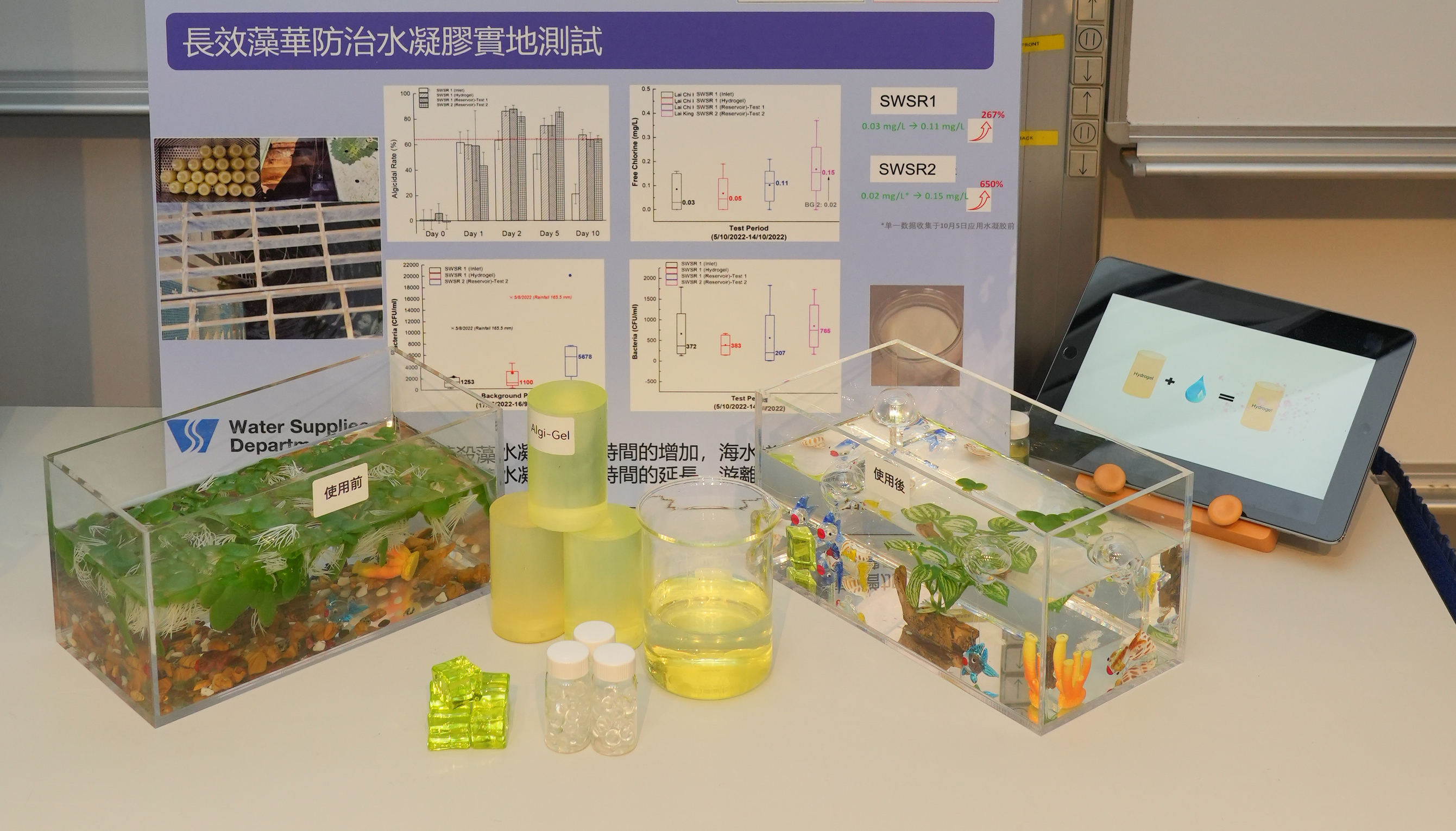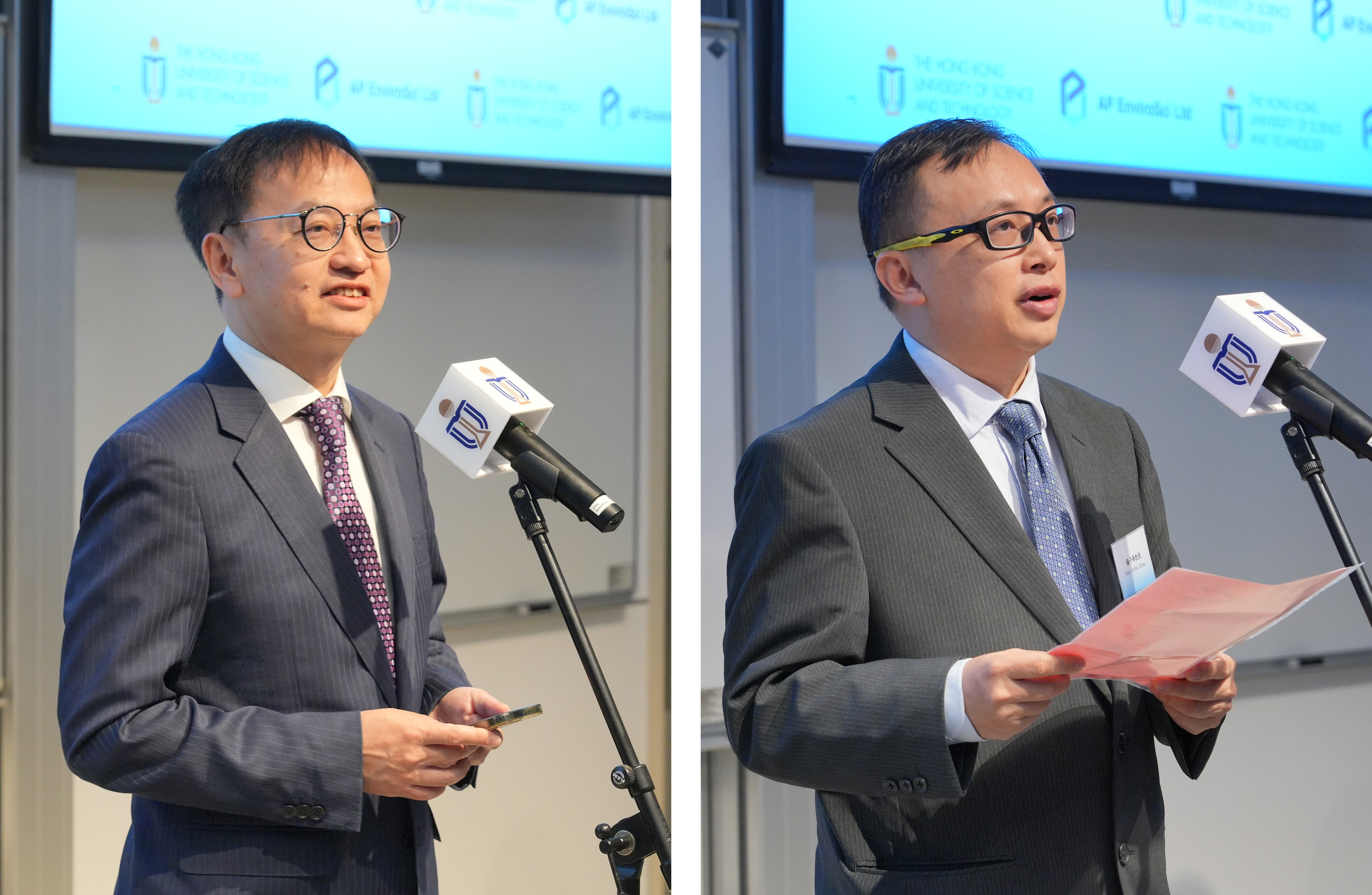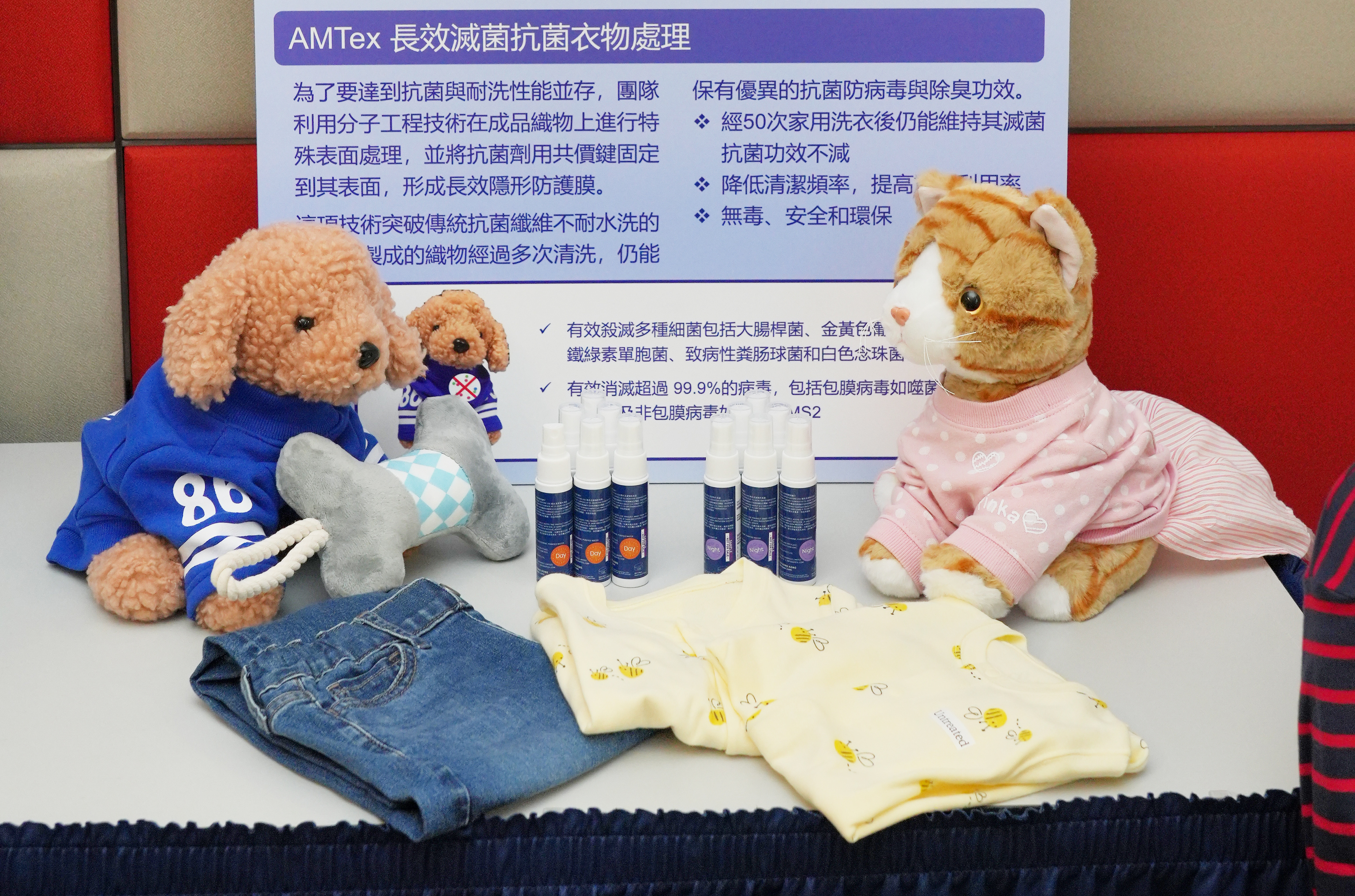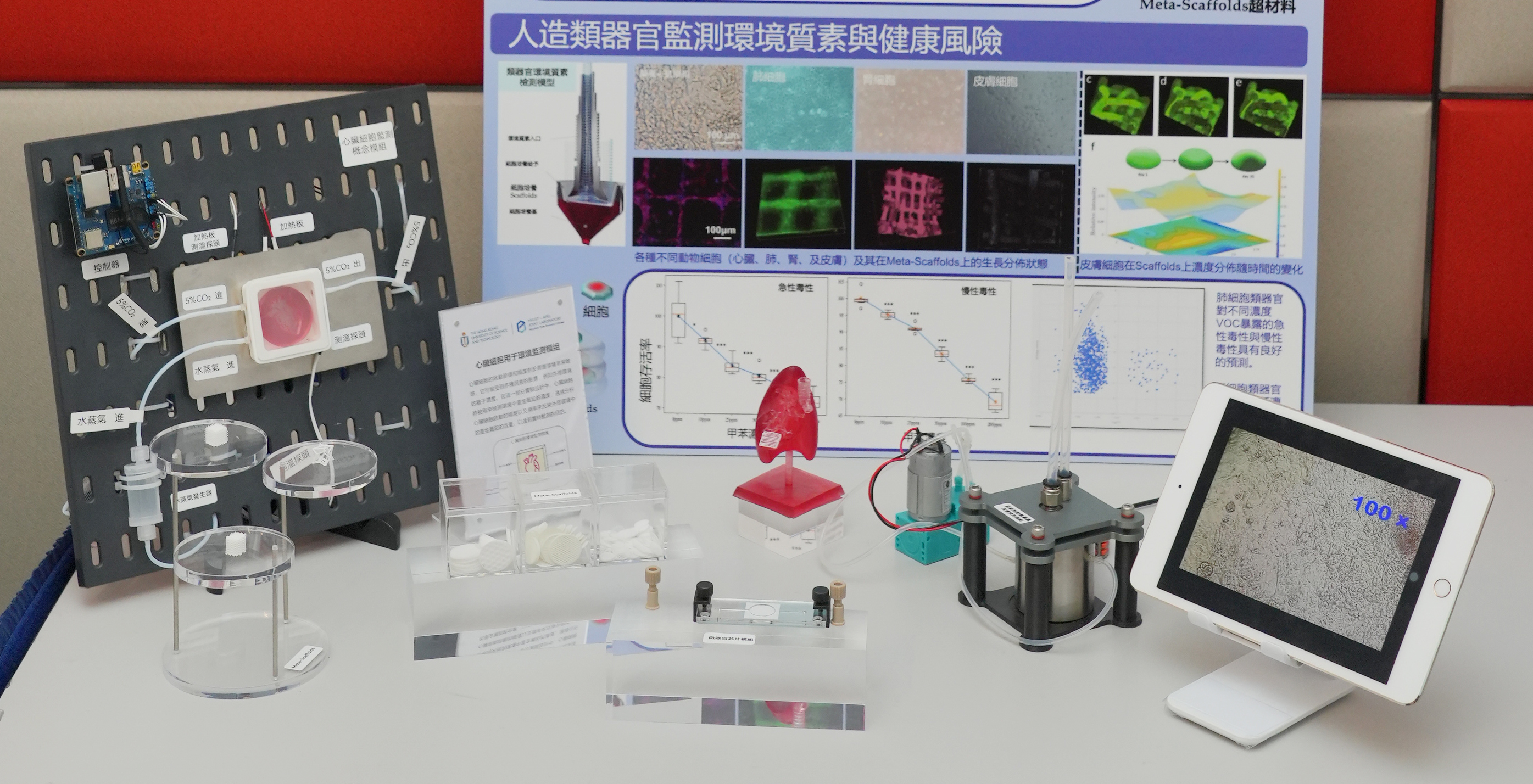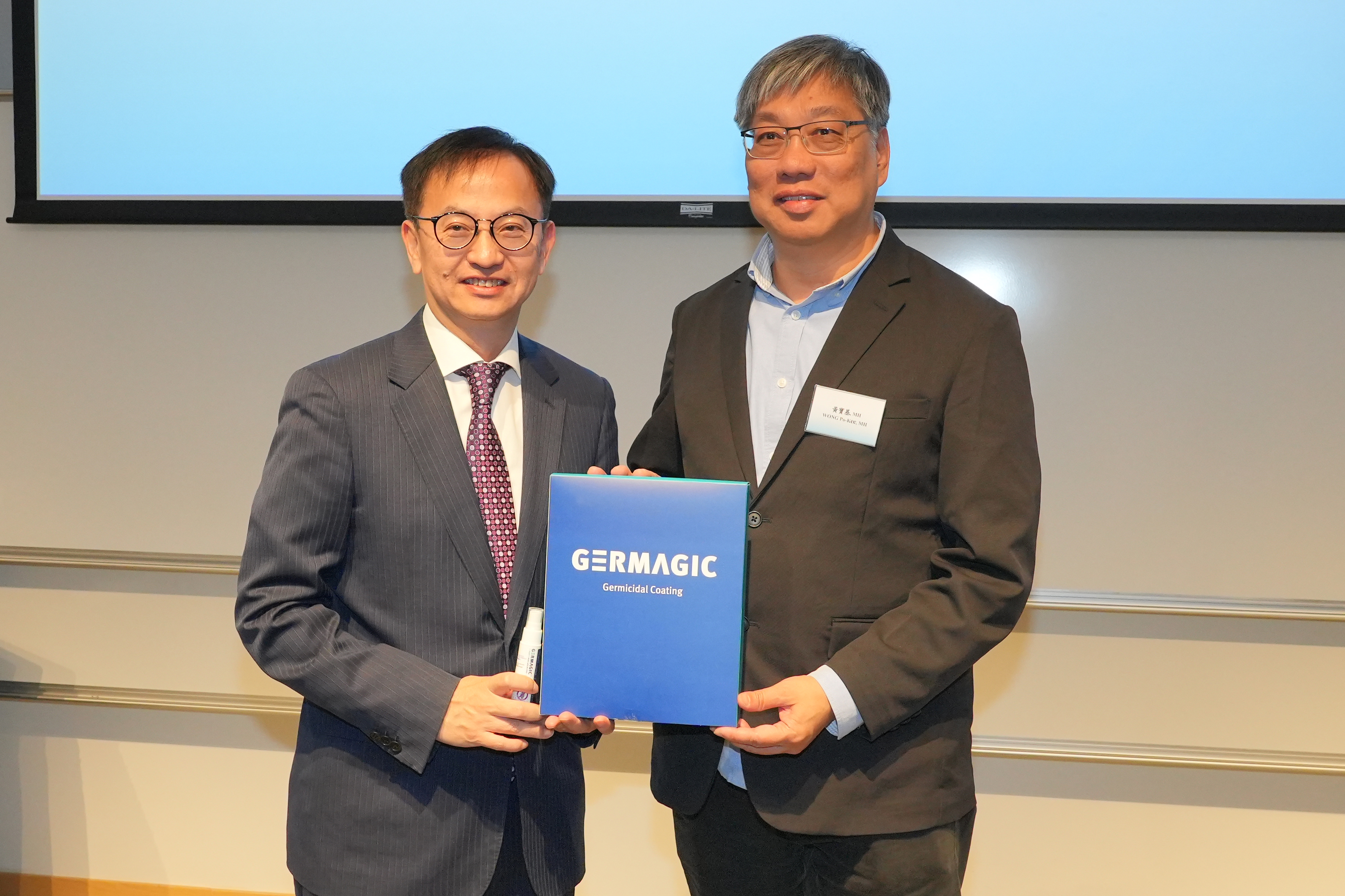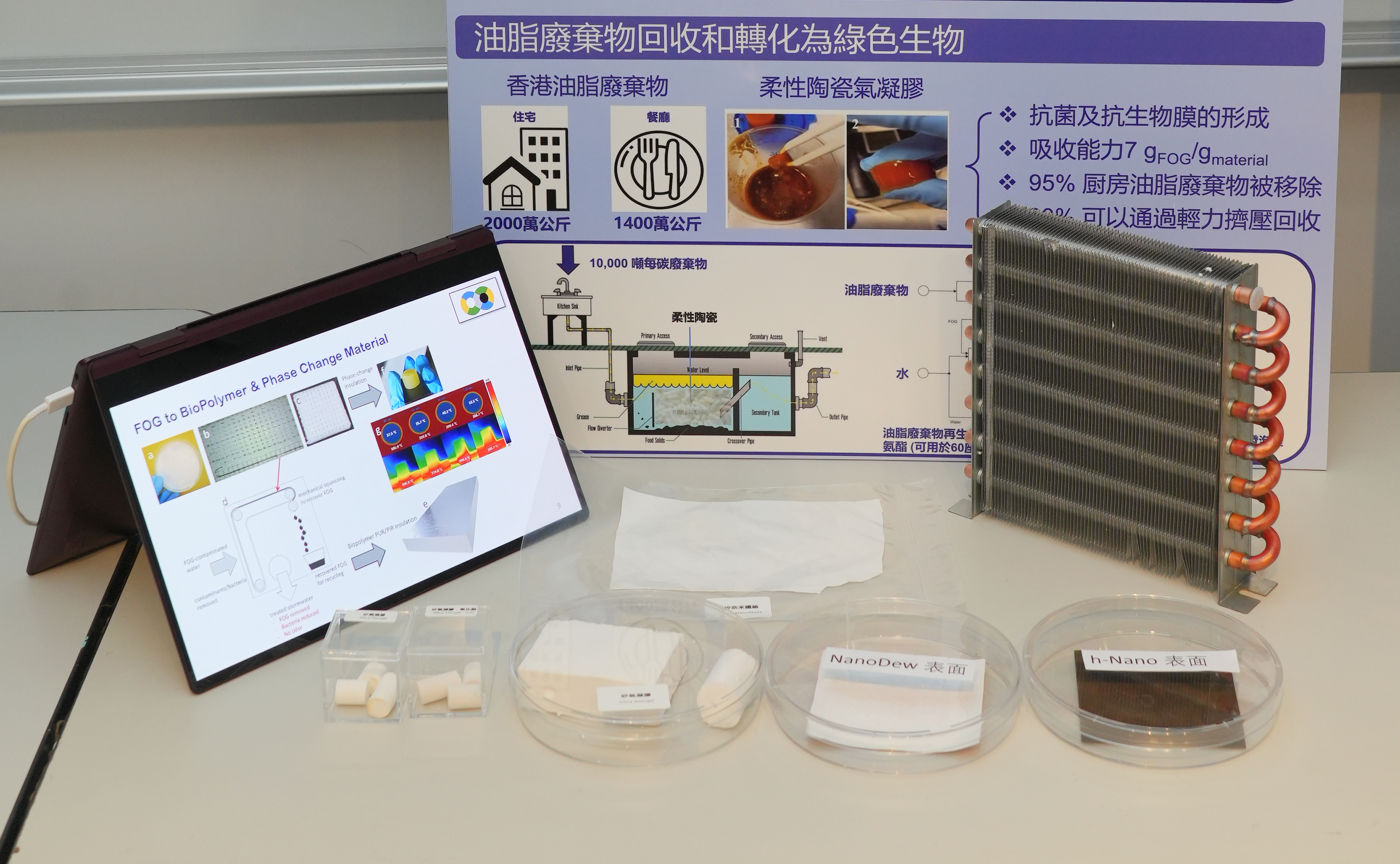The Hong Kong University of Science and Technology (HKUST) has jointly established a laboratory with Absolute Pure EnviroSci Limited (APEL) to develop and translate novel discoveries into groundbreaking health and environmental innovations. These include highly effective and long-lasting pest repellent against bedbugs that can also inactivate up to 99.9 percent of highly-infectious viruses, bacteria and hard-to-kill spores, as well as artificial organoids that could help quantify pollution’s risks on human health and provide essential data for establishing a health monitoring system in Hong Kong and Greater Bay Area (GBA).
With an initial funding of HK$20 million from APEL, an affiliated subsidiary of the listed company Yee Hop, the Joint Lab will contribute sustainable solutions to support water resources management, reduce and revalorize food waste and support decarbonization by enhancing energy efficiency from conditioning to power plant.
Prof. YEUNG, the Director of the Joint Lab, said, "HKUST empowers its members to make societal impacts through research translation and innovation. We are excited to work with APEL to create cutting-edge solutions to pressing health and environmental problems. Indeed, our joint efforts have borne innovative yet practical solutions that will ultimately improve the quality of life for communities in Hong Kong and the Greater Bay Area. Together, we will drive transformative solutions and make a lasting impact on society."
Researchers led by Prof. Yeung have also built 3D-printed cellular scaffoldings of human skin, lung, kidney, and heart cells to create artificial organoids* for monitoring air and water pollutions to directly measure their potential harm to human health. The cellular viability, functional changes, and biological expressions data from these artificial organoids will provide important health index to inform policy-makers locally and across the GBA on pollutions and pave the way to improving citizen’s health and well-being.
Other innovative solutions being developing by the Joint Lab included Algi-Gel, an award-winning hydrogel that controls and prevents the rapid proliferation of algae in fresh and seawater. It is currently being tested in partnership with the Water Supplies Department. The Joint Lab has also embarked on developing a sustainable washable air filter for better indoor air quality and an enhanced cooling surface to improve air conditioning and cooling systems.
* An organoid is a miniaturized and simplified version of an organ produced in vitro in three dimensions that mimics the key functional, structural, and biological complexity of that organ. Scientists use organoids to study development and disease in the laboratory.
Click here to read the full article.








